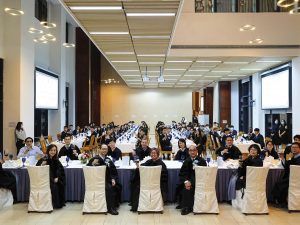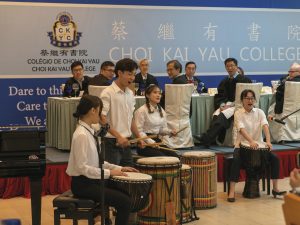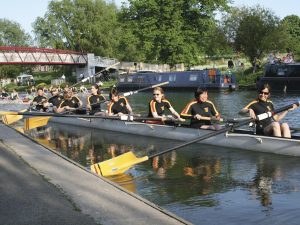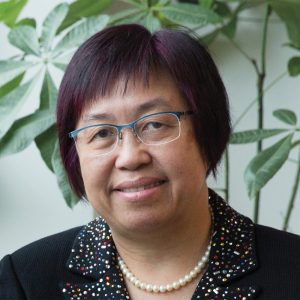In this age of Big Data, how do we measure the greatness of a university? From the multitude of data amassed and tabulated by the ranking agencies, how can we assess if a university fulfils its mission?
What is a Good University Education?
Undoubtedly, universities play a pivotal role in the advancement of knowledge, the technology transfer for the betterment of society. But we must not forget that the education of students is still a core function of a university. Even among all the quantitative measures used by the well-known university ranking systems, a large percentage of the measures relate to the transformational experience that the university provides in this critical development period as the students develop into adulthood.
What makes a good university education? I look back at my own university experience more than 40 years ago. True, I was amazed by the wealth of knowledge among the hundreds of courses on offer, from languages (e.g., Urdu) that I had never heard of, to topics that I did not know existed as a line of investigation (e.g. landscape architecture, fractal geometry). I was energised by the passion of the professors for their chosen research areas. I was thrilled to acquire new skills and deepen my expertise. Yet what was most valuable to me was my development as a person. During my university days, I learned to reflect on my own goals and aspirations, to gain a broader perspective on the world, and to comprehend my connection and responsibility to my community and society. What was essential to my growth and maturity was my experience at my residential colleges.
Life in College
I remember the most heated intellectual arguments among friends from different years in the Dining Hall, over topics beyond any of our own major disciplines. I remember staying up all night to console and support roommates going through difficult times and being appreciative when they return the favour. I remember banding together to brainstorm how we can argue with the university administration to change procedures that were unjust (as they appeared to us at that time). I remember knocking on every door in each corridor and entryway to recruit team members for intercollege competition. Somehow through all the running around, the tears and laughter, I learned teamwork and empathy, I developed integrity, and I became an adult ready to contribute back to society.
UM’s ‘4-in-1’ Model
A good university education provides the student with both an enrichment of their knowledge and skills and a transformational experience for their maturity and growth. The University of Macau (UM) is fully cognizant of this duality in university education. Its ‘4-in-1’ model clearly highlights that students should acquire discipline-specific expertise and also general knowledge, and that learning is done not only in the classroom but also through experience via internships, service learning, and community engagement.
The residential colleges at UM play a critical role as an integrative platform for students to assimilate all their learning experiences into their own personal growth. Working hand-in-hand with the faculties, the residential colleges support the students in their academic pursuits and also develop their soft skills and attitudes, as encapsulated into seven competencies: Responsible Citizenship, Global Competitiveness, Knowledge Integration, Teamwork and Collaboration, Service and Leadership, Cultural Engagement, Healthy Lifestyle.
Mission of the College
The residential college (RC) system began at UM on a trial basis in 2010. In 2014, the university inaugurated its 10 RCs upon relocation to the current campus, officially launching its experiential learning model guided by the education philosophy that ‘Education is not preparation for life. Education is life itself’. Since the establishment of Choi Kai Yau College (CKYC) in 2014, our Founding Master Prof David Pong and our College Donor Dr Jonathan Choi have formulated the CKYC Tripod as the college’s educational goal. The first tenet of the CKYC Tripod is our motto: ‘Dare to Think, Care to Act’. We encourage students to challenge themselves to open up to new ideas, to stand up and speak out, yet be balanced and mindful of others in their actions. The students’ curiosity and creativity have been channelled into several unique college traditions such as our African Drum team, our cheerleading team, etc.
The second tenet of the CKYC Tripod is ‘Citizenship with Global Awareness’. CKYC has established partnerships with colleges across mainland China and overseas. All the students who have participated in the mutual exchange visits and joint study tours have expressed appreciation of the broadening of their perspectives and valuable multi-cultural teamwork experiences.
The third tenet of the CKYC Tripod is a ‘Caring Community’. The college’s partnership with Bia Sha Primary School provides students with service-learning experiences. Our students also engage in charity work and community services in Macao. Within the college, we encourage self-governance in the organisation of hostel life.
A Living Learning Community
For me, it is most heart-warming when confident upper-year students – shy teenagers just a couple of years ago – approach me with eager ideas for how CKYC can provide a more meaningful experience for newly-admitted students. It is gratifying that the college and the students can support each other as we grow together.
At CKYC, we strive to provide a nurturing milieu for the students’ enrichment and development. Through their college experiences, we hope students will realise that every activity is a learning experience, and learning does not end with the completion of their university degree, but is a mindset that will stay with them for the rest of their lives.
Prof Janny Leung is the college master of Choi Kai Yau College at UM. She obtained an SB degree in Applied Mathematics from Harvard University, an MA in Mathematics from the University of Oxford, and a PhD from the Massachusetts Institute of Technology. She is a renowned researcher in transportation and optimisation. Having studied and worked in collegiate universities for most of her career, she is a strong believer in the value of the learning environment that a college can provide.
Source: UMagazine ISSUE 26

Prof Janny Leung’s first Formal Hall Dinner at CKYC

CKYC’s African Drum Ensemble

Students of CKYC and Sacred Heart Canossian College Macau clean up a beach in Coloane

CKYC won the overall championship in the CICA Masters’ Cup for the 2020/2021 academic year

Prof Janny Leung rows for Clare Hall at the University of Cambridge, 33 years after she joined a rowing team at university to learn a new sport.

Prof Janny Leung
